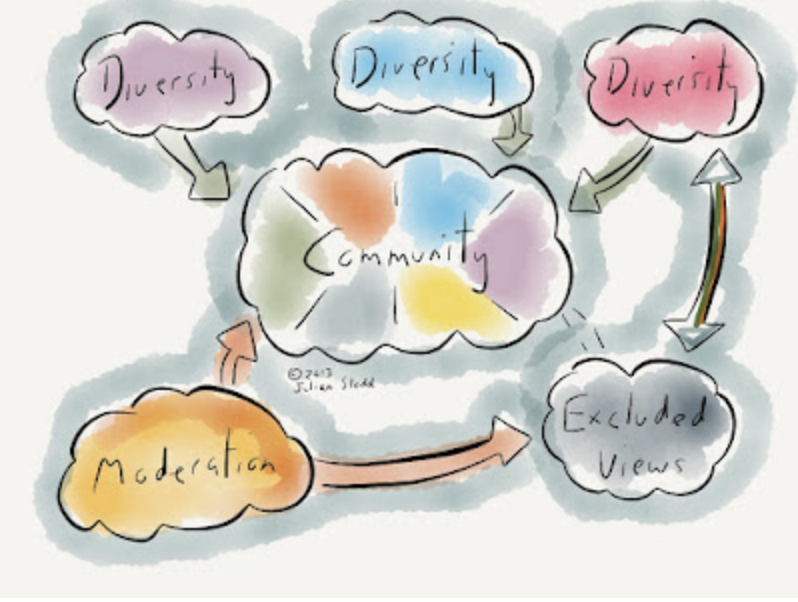I believe that the stable change theory correlates to the world around us today. It especially feels like technology is changing everything overnight everyday, but when you look closer, most of those changes happen within existing social, legal, and cultural frameworks. Social media, for instance, has transformed how all of us communicate, such as this generation's ideas of slang, but core ideas like free speech, privacy, and public discourse remain the foundational principles that guide how those platforms work and how governments and societies respond to them. Stable change theory would suggest that while the tools and technologies evolve rapidly, the underlying social structures are way more stable and end up adapting over time.
For example, the rise of artificial intelligence is causing a lot of debate, but governments and legal systems are gradually adapting existing frameworks to deal with these new technologies, rather than reinventing everything from scratch which is far more complicated. Secondly, social justice movements like Black Lives Matter, or the climate activism, and the LGBTQ+ rights campaigns push for significant change but those changes often happen through stable, structured systems such as courts, legislatures, and public discourse. While the movements feel disruptive, stable change theory suggests that long-term social change typically unfolds within institutional frameworks and that remains relatively steady, adjusting gradually in response to pressure. Marriage equality in the U.S. didn’t happen overnight. It was the result of decades of activism, court cases, public opinion shifts, and even incremental policy changes.The legal system itself remained intact while slowly evolving to include new interpretations of equal rights. Capitalism, for example, has evolved significantly over the past century especially from industrial capitalism to digital economies but the basic structure of markets, supply and demand, private property, and profit incentives remains stable. Even with major conflicts, crises, or shifts in leadership, international politics tends to operate within stable systems like the United Nations, trade agreements, and diplomatic protocols. These institutions help manage conflict and change in an orderly way, reducing the risk of chaos.The COVID-19 pandemic disrupted economies and societies worldwide, but many responses from public health guidelines to international cooperation for vaccine distribution were built on existing frameworks like the World Health Organization or national healthcare systems. Economies change, but typically within a stable theoretical and institutional framework. When we entered the pandemic a lot of people ended up losing their jobs or working from home. All of us ended up having to face new realities of the world and stay in a closed space, governments and businesses still operate within a stable legal and financial system. Stable change theory offers a valuable perspective in a world that often feels very chaotic. It often reminds us that while society, technology, and politics are always evolving, they tend to do so within enduring systems that provide continuity and structure. This helps explain why major revolutions or collapses are rare, and why change is often slower, more complicated, and more incremental than it first appears.



No comments:
Post a Comment